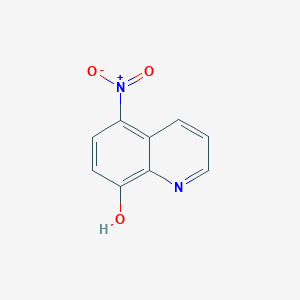-
Categories
-
Pharmaceutical Intermediates
-
Active Pharmaceutical Ingredients
-
Food Additives
- Industrial Coatings
- Agrochemicals
- Dyes and Pigments
- Surfactant
- Flavors and Fragrances
- Chemical Reagents
- Catalyst and Auxiliary
- Natural Products
- Inorganic Chemistry
-
Organic Chemistry
-
Biochemical Engineering
- Analytical Chemistry
- Cosmetic Ingredient
-
Pharmaceutical Intermediates
Promotion
ECHEMI Mall
Wholesale
Weekly Price
Exhibition
News
-
Trade Service
Last month, it was reported that the U.S. FDA had proposed withdrawing accelerated approval for makena, amAG Pharmaceuticals' premaconceive prevention drug.
AMAG filed a request not to accept the FDA's withdrawal proposal and called for a public hearing to discuss the withdrawal.
fda director will decide whether to approve the hearing request and ultimately whether to revoke approval of the drug.
november 3rd, two opinion pieces published in the same issue of the New England Journal of Medicine expressed their views on whether Makena should be withdrawn.
The first article was written by Christina Chang, M.D., head of the clinical team at the ODE III Division of The Fda's Office of Drug Review and Research (CDER) New Drug Review (OND) Department of ODE III, and colleagues entitled "Makena's Revocation - Proposals from the FDA Drug Review and Research Center."
Chang said, "We sympathize with women who are at risk of relapse premature birth, which can lead to neonatal death or major lifelong health problems, but keeping a drug on the market that has not proven to be effective for this purpose does not protect or promote their health."
" Makena's accelerated approval is based on the success of Trial 002, a randomized, double-blind, placebo-controlled trial that showed that oxycodone had reduced the proportion of pregnant women who gave birth before 37 weeks of pregnancy in a single pregnancy with a previous history of premature childbirth.
the trial was not designed enough to determine whether the drug would benefit newborns, which the FDA believes is the key to its clinical significance.
despite the lack of evidence on neonatal outcomes, the FDA continued to expedite approval, but asked AMAG to conduct post-approval conclusive trials to study neonatal outcomes.
003, 1,708 women from nine countries were recruited for Makena or placebo therapy.
study had two common main endpoints: the proportion of newborns who gave birth before 35 weeks of pregnancy and had at least one of the six adverse health outcomes associated with precocm birth.
003 did not show any benefit from premature birth or neonatal outcomes.
specifically, the difference was not statistically significant, with 11 percent of women giving birth before 35 weeks and 12 percent of women using a placebo.
the placebo and treatment groups had similar results when looking at the proportion of births before 37 weeks.
the placebo group had almost identical results for health outcomes in newborns.
Another article, "Premature Births and 17 OHP - Why the FDA Shouldn't Revoke Approval," by Michael Greene, M.D., M.D., an expert in maternal and child medicine at Massachusetts General Hospital in Boston, and colleagues expressed a different view that different groups of people in the study differed widely in corrorobutive trials, and that a lower percentage of black women could be the reason for the change in effectiveness.
they urged the FDA not to revoke Makena's approval, noting that the withdrawal would "put very vulnerable women in the United States at high risk of this pregnancy complication, with absolutely no treatment options available."
" CDER officials answered this question in their article.
, cdER sees contradictory results from well-executed randomized trials? Despite numerous analyses, we were unable to coordinate these inconsistent findings even in the 003 trial, which targeted only American, black or non-black women, or high-risk women.
, we can't attribute different outcomes to differences in patient populations or differences in patient risk levels.
addition, Test 003 is almost four times the size of Test 002 and has sufficient ability to detect similar relative risk reductions, even when the rate of recurrent premament is significantly reduced.
, we cannot attribute the lack of effectiveness in Test 003 to a lack of test design capability.
, in the Makena and placebo groups, the proportion of participants who reached the end of the effectiveness of trial 003 was actually the same.
also observed a trend towards poor treatment effectiveness in subgroup analysis, including analysis based on race and other risk factors.
if there are two inconsistent test results in the initial listing application , we will conclude that there is insufficient evidence to prove their validity .
, CDER does not now have enough validity evidence to support the continued marketability of Makena.
[1] Chang, C. Y., Nguyen, C. P., Wesley, B., Guo, J., Johnson, L. L., & Joffe, H. V. (2020). Withdrawing Approval of Makena—A Proposal from the FDA Center for Drug Evaluation and Research. New England Journal of Medicine. [2] Greene, M. F., Klebanoff, M. A., & Harrington, D. (2020). Preterm Birth and 17OHP-Why the FDA Should Not Withdraw Approval. The New England journal of medicine







